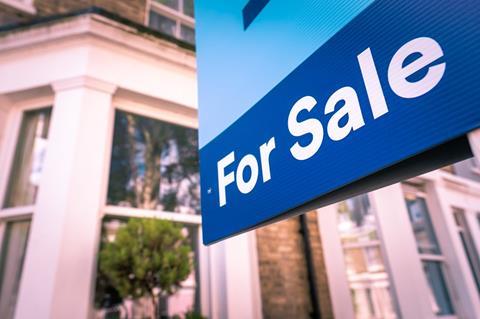Average house selling at £14 more in February than January - but more buyers are coming returning to the market
The asking price of an average house failed to meaningfully increase between January and February this year - the first time it has ever done so, Rightmove has said.

But while homes are being sold at only £14 more this month compared to last, the onlineproperty agent also showed that buyer interest was increasing, and was 11% more than in the same period in 2019.
Rightmove said the minimal house price rise, making an average house sell at £362,452 this month, was because “sellers are heeding their agents’ advice to price right first time”.
“New sellers have broken with tradition and held prices static for the first time ever at this time of year rather than increase them,” the agent said.
Tim Bannister, Rightmove’s director of property science, said: “Though it is still very early in the year, this month’s key metrics suggest that many buyers are seeing reasons to get on with their moves, and have the confidence to return to a market which, so far, is stronger than many expected.
“This demand is beginning to translate into sales, as the number of sales agreed is now just 11% down on the same period in 2019’s more normal market, picking up from 15% down at the start of the year and vastly improved from 30% down in the aftermath of September’s mini-budget.”
The mini-budget last year caused turmoil in the housing market and saw mortgages hit a 14-year high. Mortgage approvals fell to their lowest level for almost 14 years in December, according to Bank of England data released last month.
Bannister said increased buyer interest was “quite a remarkable turnaround given the rapid increase in mortgage rates less than six months ago”.
Although there was still a shortage of property, down 24% this February compared to the same month in 2019, Rightmove said there was “more choice for buyers than a year ago, giving prospective buyers confidence for their onward move”.
Bannister also said it was “even more surprising” that the first-time buyer sector was recovering better than the top end of the market.
The first-time buyer sector is down only 7% on 2019, according to Rightmove. Bannister said: “This suggests that though the first-time buyer sector has been hardest hit in terms of the number of buyers enquiring, those who are in the market and able to move are motivated to agree a purchase, likely driven in part by high and increasing rents, and a continued desire to own their own home.”
Sales in the top-of-the-ladder sector were down by 16% in the first two weeks of February compared with the same time in 2019, he noted. This was “an indication of hyper-local and sector differences”, Bannister said.
Rightmove’s monthly price index echoes those of others recently. The Nationwide showed house prices month-on-month fell by 0.6% in January. The Office for National Statistics indicated annual house price growth slowed for second successive month in December last year.
Surveyors’ body RICS said that buyer demand was down for the ninth consecutive month in January.










No comments yet